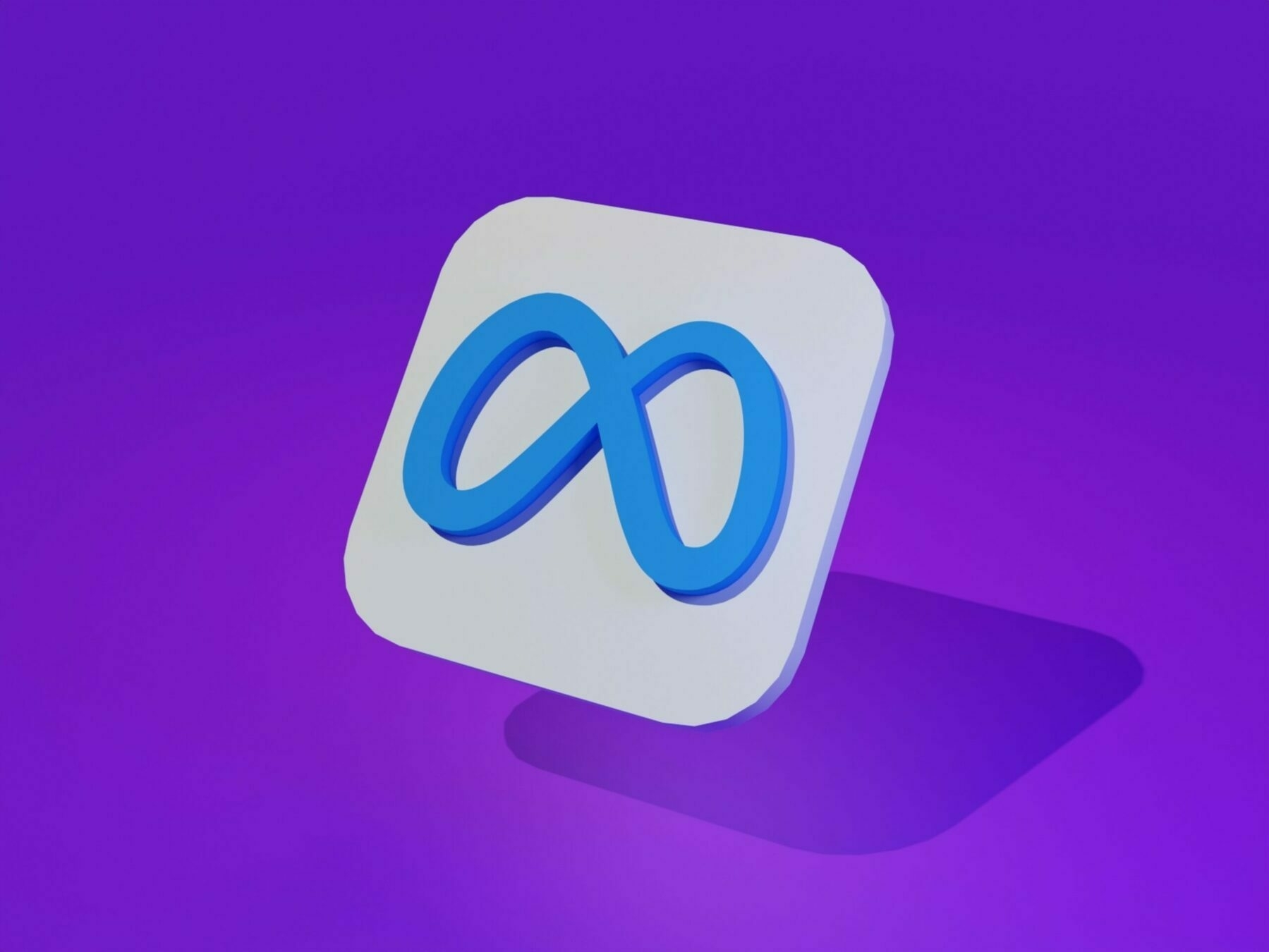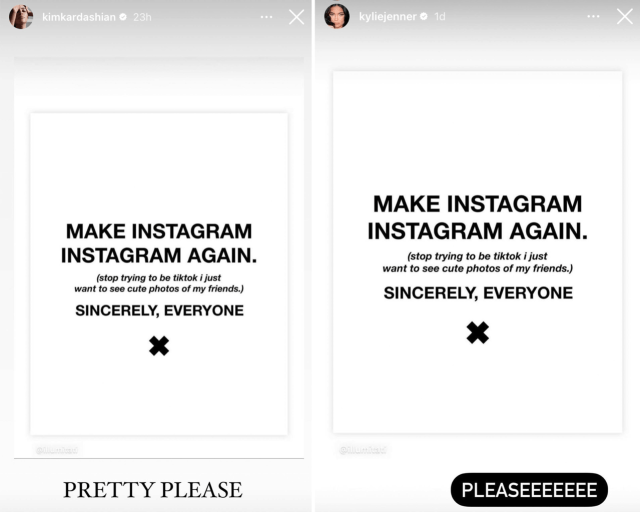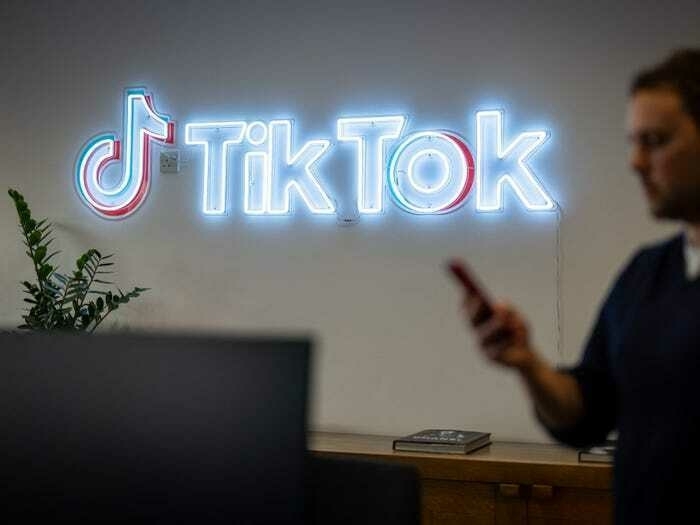Using WhatsApp is a (poor) choice that you make
People often ask me about my stance on Facebook products. They can understand that I don't use Facebook itself, but what about Instagram? And surely I use WhatsApp? Nope.
Given that I don't usually have a single place to point people who want to read about the problems with WhatsApp, I thought I'd create one.
WhatsApp is a messaging app that was acquired by Facebook for the eye-watering amount of $19 billion in 2014. Interestingly, a BuzzFeed News article from 2018 cites documents confidential documents from the time leading up to the acquisition that were acquired by the UK's Department for Culture, Media, and Sport. They show the threat WhatsApp posed to Facebook at the time.
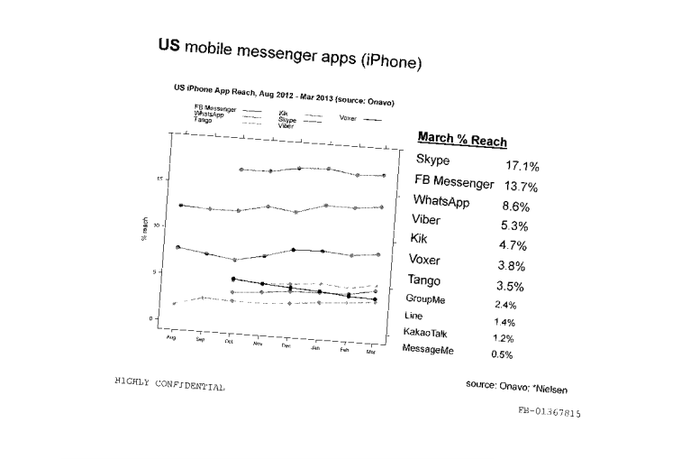
As you can see from the above chart, Facebook executives were shown in 2013 that WhatsApp (8.6% reach) was growing rapidly and posed a huge threat to Facebook Messenger (13.7% reach).
So Facebook bought WhatsApp. But what did they buy? If, as we're led to believe, WhatsApp is 'end-to-end encrypted' then Facebook don't have access to the messages of users. So what's so valuable?
Brian Acton, one of the founders of WhatsApp (and a man who got very rich through its sale) has gone on record saying that he feels like he sold his users' privacy to Facebook.
Facebook, Acton says, had decided to pursue two ways of making money from WhatsApp. First, by showing targeted ads in WhatsApp’s new Status feature, which Acton felt broke a social compact with its users. “Targeted advertising is what makes me unhappy,” he says. His motto at WhatsApp had been “No ads, no games, no gimmicks”—a direct contrast with a parent company that derived 98% of its revenue from advertising. Another motto had been “Take the time to get it right,” a stark contrast to “Move fast and break things.”
Facebook also wanted to sell businesses tools to chat with WhatsApp users. Once businesses were on board, Facebook hoped to sell them analytics tools, too. The challenge was WhatsApp’s watertight end-to-end encryption, which stopped both WhatsApp and Facebook from reading messages. While Facebook didn’t plan to break the encryption, Acton says, its managers did question and “probe” ways to offer businesses analytical insights on WhatsApp users in an encrypted environment.
Parmy Olson (Forbes)
The other way Facebook wanted to make money was to sell tools to businesses allowing them to chat with WhatsApp users. These tools would also give "analytical insights" on how users interacted with WhatsApp.
Facebook was allowed to acquire WhatsApp (and Instagram) despite fears around monopolistic practices. This was because they made a promise not to combine data from various platforms. But, guess what happened next?
In 2014, Facebook bought WhatsApp for $19b, and promised users that it wouldn't harvest their data and mix it with the surveillance troves it got from Facebook and Instagram. It lied. Years later, Facebook mixes data from all of its properties, mining it for data that ultimately helps advertisers, political campaigns and fraudsters find prospects for whatever they're peddling. Today, Facebook is in the process of acquiring Giphy, and while Giphy currently doesn’t track users when they embed GIFs in messages, Facebook could start doing that anytime.
Cory Doctorow (EFF)
So Facebook is harvesting metadata from its various platforms, tracking people around the web (even if they don't have an account), and buying up data about offline activities.
All of this creates a profile. So yes, because of end-ot-end encryption, Facebook might not know the exact details of your messages. But they know that you've started messaging a particular user account around midnight every night. They know that you've started interacting with a bunch of stuff around anxiety. They know how the people you message most tend to vote.
Do I have to connect the dots here? This is a company that sells targeted adverts, the kind of adverts that can influence the outcome of elections. Of course, Facebook will never admit that its platforms are the problem, it's always the responsibility of the user to be 'vigilant'.
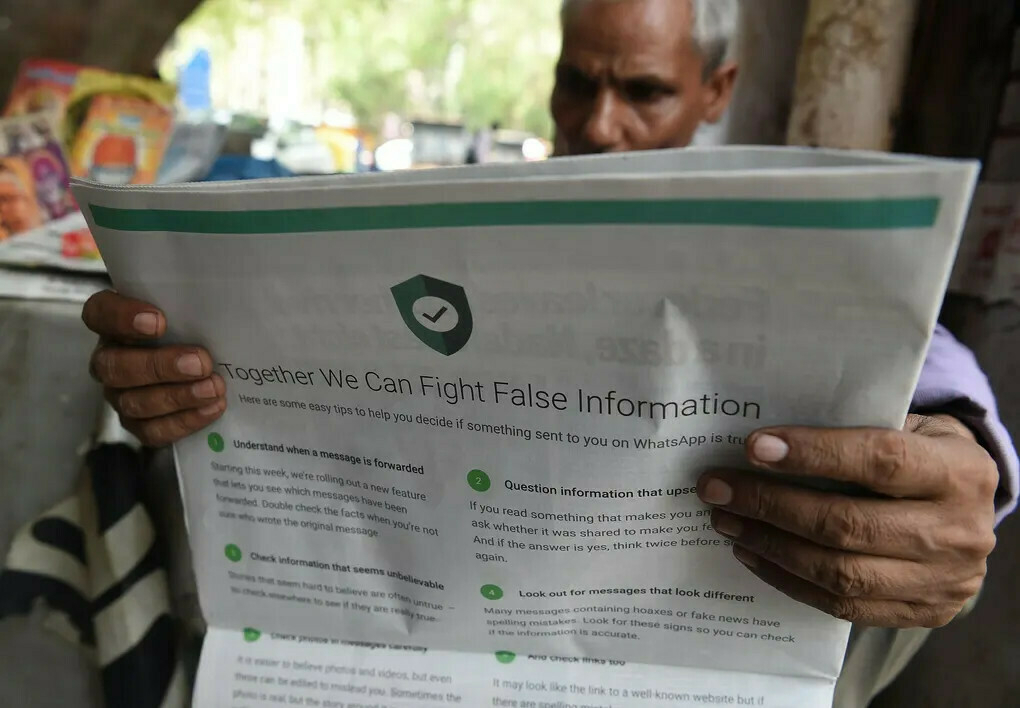
So you might think that you're just messaging your friend or colleague on a platform that 'everyone' uses. But your decision to go with the flow has consequences. It has implications for democracy. It has implications on creating a de facto monopoly for our digital information. And it has implications around the dissemination of false information.
The features that would later allow WhatsApp to become a conduit for conspiracy theory and political conflict were ones never integral to SMS, and have more in common with email: the creation of groups and the ability to forward messages. The ability to forward messages from one group to another – recently limited in response to Covid-19-related misinformation – makes for a potent informational weapon. Groups were initially limited in size to 100 people, but this was later increased to 256. That’s small enough to feel exclusive, but if 256 people forward a message on to another 256 people, 65,536 will have received it.
[...]
A communication medium that connects groups of up to 256 people, without any public visibility, operating via the phones in their pockets, is by its very nature, well-suited to supporting secrecy. Obviously not every group chat counts as a “conspiracy”. But it makes the question of how society coheres, who is associated with whom, into a matter of speculation – something that involves a trace of conspiracy theory. In that sense, WhatsApp is not just a channel for the circulation of conspiracy theories, but offers content for them as well. The medium is the message.
William Davies (The Guardian)
I cannot control the decisions others make, nor have I forced my opinions on my two children, who (despite my warnings) both use WhatsApp to message their friends. But, for me, the risk to myself and society of using WhatsApp is not one I'm happy with taking.
Just don't say I didn't warn you.
Header image by Rachit Tank
Friday facings
This week's links seem to have a theme about faces and looking at them through screens. I'm not sure what that says about either my network, or my interests, but there we are...
As ever, let me know what resonates with you, and if you have any thoughts on what's shared below!
The Age of Instagram Face
The human body is an unusual sort of Instagram subject: it can be adjusted, with the right kind of effort, to perform better and better over time. Art directors at magazines have long edited photos of celebrities to better match unrealistic beauty standards; now you can do that to pictures of yourself with just a few taps on your phone.
Jia Tolentino (The New Yorker)
People, especially women, but there's increasing pressure on young men too, are literally going to see plastic surgeons with 'Facetuned' versions of themselves. It's hard not to think that we're heading for a kind of dystopia when people want to look like cartoonish versions of themselves.
What Makes A Good Person?
What I learned as a child is that most people don’t even meet the responsibilities of their positions (husband, wife, teacher, boss, politicians, whatever.) A few do their duty, and I honor them for it, because it is rare. But to go beyond that and actually be a man of honor is unbelievably rare.
Ian Welsh
This question, as I've been talking with my therapist about, is one I ask myself all the time. Recently, I've settled on Marcus Aurelius' approach: "Waste no more time arguing about what a good man should be. Be one."
Boredom is but a window to a sunny day beyond the gloom
Boredom can be our way of telling ourselves that we are not spending our time as well as we could, that we should be doing something more enjoyable, more useful, or more fulfilling. From this point of view, boredom is an agent of change and progress, a driver of ambition, shepherding us out into larger, greener pastures.
Neel Burton (Aeon)
As I've discussed before, I'm not so sure about the fetishisation of 'boredom'. It's good to be creative and let the mind wander. But boredom? Nah. There's too much interesting stuff out there.

Resting Risk Face
Unlock your devices with a surgical mask that looks just like you.
I don't usually link to products in this roundup, but I'm not sure this is 100% serious. Good idea, though!
The world's biggest work-from-home experiment has been triggered by coronavirus
For some employees, like teachers who have conducted classes digitally for weeks, working from home can be a nightmare.
Jessie Yeung (CNN)
But in other sectors, this unexpected experiment has been so well received that employers are considering adopting it as a more permanent measure. For those who advocate more flexible working options, the past few weeks mark a possible step toward widespread -- and long-awaited -- reform.
Every cloud has a silver lining, I guess? Working from home is great, especially when you have a decent setup.
Setting Up Your Webcam, Lights, and Audio for Remote Work, Podcasting, Videos, and Streaming
Only you really know what level of clarity you want from each piece of your setup. Are you happy with what you have? Please, dear Lord, don't spend any money. This is intended to be a resource if you want more and don't know how to do it, not a stress or a judgment to anyone happy with their current setup
And while it's a lot of fun to have a really high-quality webcam for my remote work, would I have bought it if I didn't have a more intense need for high quality video for my YouTube stuff? Hell no. Get what you need, in your budget. This is just a resource.
This is a fantastic guide. I bought a great webcam when I saw it drop in price via CamelCamelCamel and bought a decent mic when I recorded the TIDE podcast wiht Dai. It really does make a difference.
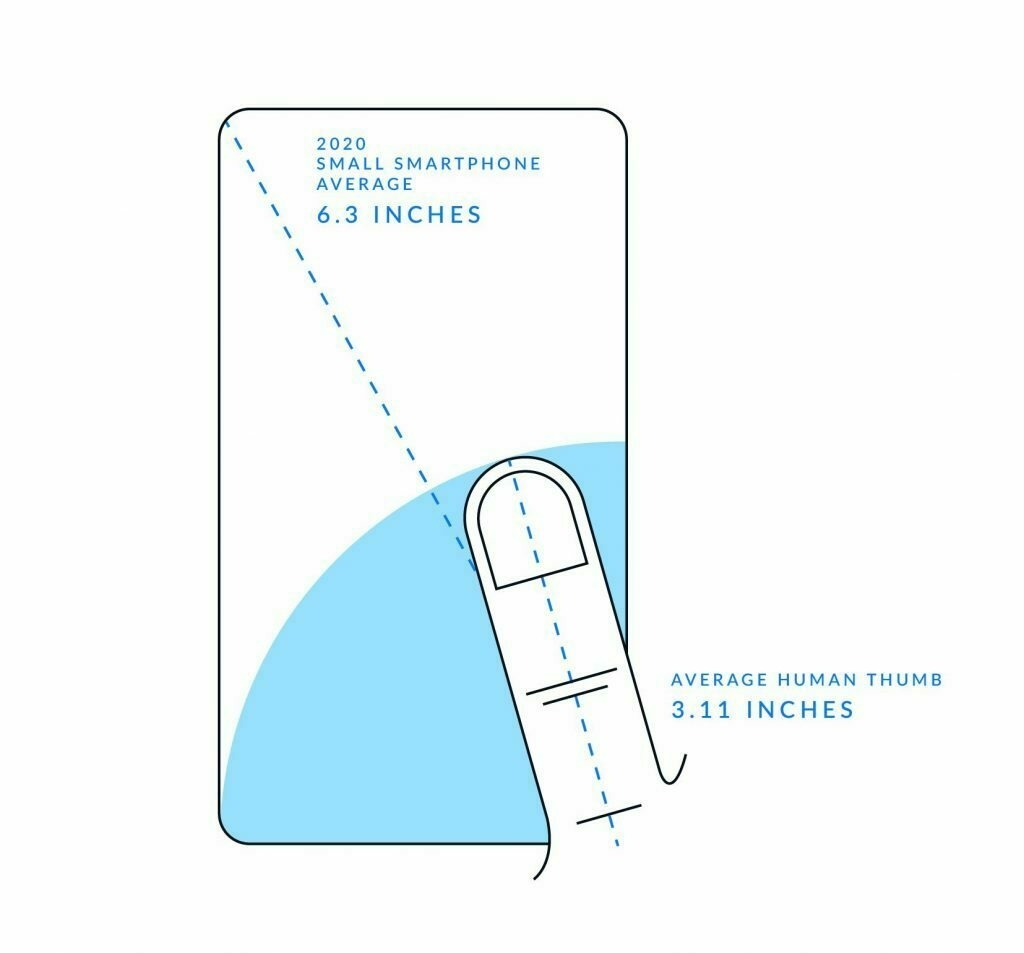
Large screen phones: a challenge for UX design (and human hands)
I know it might sound like I have more questions than answers, but it seems to me that we are missing out on a very basic solution for the screen size problem. Manufacturers did so much to increase the screen size, computational power and battery capacity whilst keeping phones thin, that switching the apps navigation to the bottom should have been the automatic response to this new paradigm.
Maria Grilo (Imaginary Cloud)
The struggle is real. I invested in a new phone this week (a OnePlus 7 Pro 5G) and, unlike the phone it replaced from 2017, it's definitely a hold-with-two-hands device.
Society Desperately Needs An Alternative Web
What has also transpired is a web of unbridled opportunism and exploitation, uncertainty and disparity. We see increasing pockets of silos and echo chambers fueled by anxiety, misplaced trust, and confirmation bias. As the mainstream consumer lays witness to these intentions, we notice a growing marginalization that propels more to unplug from these communities and applications to safeguard their mental health. However, the addiction technology has produced cannot be easily remedied. In the meantime, people continue to suffer.
Hessie Jones (Forbes)
Another call to re-decentralise the web, this time based on arguments about centralised services not being able to handle the scale of abuse and fraudulent activity.
UK Google users could lose EU GDPR data protections
It is understood that Google decided to move its British users out of Irish jurisdiction because it is unclear whether Britain will follow GDPR or adopt other rules that could affect the handling of user data.
If British Google users have their data kept in Ireland, it would be more difficult for British authorities to recover it in criminal investigations.
The recent Cloud Act in the US, however, is expected to make it easier for British authorities to obtain data from US companies. Britain and the US are also on track to negotiate a broader trade agreement.
Samuel Gibbs (The Guardian)
I'm sure this is a business decision as well, but I guess it makes sense given post-Brexit uncertainty about privacy legislation. It's a shame, though, and a little concerning.
Enjoy this? Sign up for the weekly roundup, become a supporter, or download Thought Shrapnel Vol.1: Personal Productivity!
Header image by Luc van Loon
Insidious Instagram influencers?
There seems to a lot of pushback at the moment against the kind of lifestyle that’s a direct result of the Silicon Valley mindset. People are rejecting everything from the Instagram ‘influencer’ approach to life to the ‘techbro’-style crazy working hours.
This week saw Basecamp, a company that prides itself on the work/life balance of its employees and on rejecting venture capital, publish another book. You can guess at what it focuses on from its title, It doesn’t have to be crazy at work. I’ve enjoyed and have recommended their previous books (as ‘37 Signals’), and am looking forward to reading this latest one.
Alongside that book, I’ve seen three articles that, to me at least, are all related to the same underlying issues. The first comes from Simone Stolzoff who writes in Quartz at Work that we’re no longer quite sure what we’re working for:
Part of this lack of work/life balance comes from our inability these days to simply have hobbies, or interests, or do anything just for the sake of it. As Tim Wu points out in The New York Times, it's all linked some kind of existential issue around identity:Before I became a journalist, I worked in an office with hot breakfast in the mornings and yoga in the evenings. I was #blessed. But I would reflect on certain weeks—after a string of days where I was lured in before 8am and stayed until well after sunset—like a driver on the highway who can’t remember the last five miles of road. My life had become my work. And my work had become a series of rinse-and-repeat days that started to feel indistinguishable from one another.
If you’re a jogger, it is no longer enough to cruise around the block; you’re training for the next marathon. If you’re a painter, you are no longer passing a pleasant afternoon, just you, your watercolors and your water lilies; you are trying to land a gallery show or at least garner a respectable social media following. When your identity is linked to your hobby — you’re a yogi, a surfer, a rock climber — you’d better be good at it, or else who are you?To me, this is inextricably linked to George Monbiot's recent piece in The Guardian about about the problem of actors being interviewed about the world's issues disproportionately more often than anybody else. As a result, we're rewarding those people who look like they know what they're talking about with our collective attention, rather than those who actually do. Monbiot concludes:
The task of all citizens is to understand what we are seeing. The world as portrayed is not the world as it is. The personification of complex issues confuses and misdirects us, ensuring that we struggle to comprehend and respond to our predicaments. This, it seems, is often the point.There's always been a difference between appearance and reality in public life. However, previously, at least they seem to have been two faces of the same coin. These days, our working lives as well as our public lives seem to be
Sources: Basecamp / Quartz at Work / The New York Times / The Guardian
On 'instagrammability'
“We shape our tools and thereafter our tools shape us.” (John M. Culkin)I choose not to use or link to Facebook services, and that includes Instagram and WhatsApp. I do, however, recognise the huge power that Instagram has over some people's lives which, of course, trickles down to businesses and those looking to "live the Instagram lifestyle".
The design blog Dezeen picks up on a report from an Australian firm of architects, demonstrating that ‘Instagrammable moments’ are now part of their brief.

I’m all for user stories and creating personas but one case looks like grounds for divorce, Bob is seen as the servant of Michelle, who wants to be photographed doing things she’s seen others doing
One case study features Bob and Michelle, a couple with "very different ideas about what their holiday should look like."It’s easy to roll your eyes at this (and trust me, mine are almost rotating out of their sockets) but the historian in me finds this fascinating. I wonder if future generations will realise that architectural details were a result of photos been taken for a particular service?While Bob wants to surf, drink beer and spend quality time with Michelle, she wants to “be pampered and live the Instagram life of fresh coconuts and lounging by the pool.”
In response to this type of user, designers should focus on providing what Michelle wants, since “Bob’s main job this holiday is to take pictures of Michelle.”
“Michelle wants pictures of herself in the pool, of bright colours, and of fresh attractive food,” the report says. “You’ll also find her taking pictures of remarkable indoor and outdoor artwork like murals or inspirational signage."
Other designers taking users' Instagram preferences into account include Coordination Asia, who recent project for restaurant chain Gaga in Shanghai has been optimised so design elements fit in a photo frame and maximise the potential for selfies.Of course, architects and designers have to start somewhere and perhaps ‘instagrammability’ is a useful creative constraint.Instagram co-founder Mike Krieger told Dezeen that he had noticed that the platform was influencing interior design.
"Hopefully it leads to a creative spark and things feeling different over time," [Krieger] said. "I think a bad effect would be that same definition of instagrammability in every single space. But instead, if you can make it yours, it can add something to the building."Now that I’ve read this, I’ll be noticing this everywhere, no doubt.Instagram was placed at number 66 in the latest Dezeen Hot List of the most newsworthy forces in world design.
Source: Dezeen
